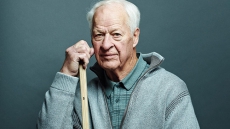Researchers have found that low-bone density is a modern phenomenon caused probably by humans' shift from a foraging lifestyle to a sedentary agricultural one.
For millions of years, extinct humans had high bone density until a dramatic decrease in recent modern humans, the findings showed.
"Much to our surprise, throughout our deep past, we see that our human ancestors and relatives, who lived in natural settings, had very dense bone," said Brian Richmond, professor at George Washington University and one of the study authors.
"And even early members of our species, going back 20,000 years or so, had bone that was about as dense as seen in other modern species," he said.
The research is based on a high-resolution imaging of bone joints from modern humans and chimpanzees as well as from fossils of extinct human species.
The work provides an anthropological context to modern bone conditions like osteoporosis, a bone-weakening disorder that may be more prevalent in contemporary populations due partly to low levels of walking activity.
"Over the vast majority of human prehistory, our ancestors engaged in far more activity over longer distances than we do today," he said.
"We cannot fully understand human health today without knowing how our bodies evolved to work in the past, so it is important to understand how our skeletons evolved within the context of those high levels of activity," he added.
The findings explain why compared to our closest living relatives--chimpanzees--as well as to our extinct human ancestors, modern humans have lightweight skeleton.
The study appeared in the journal Proceedings of the National Academy of Sciences.




